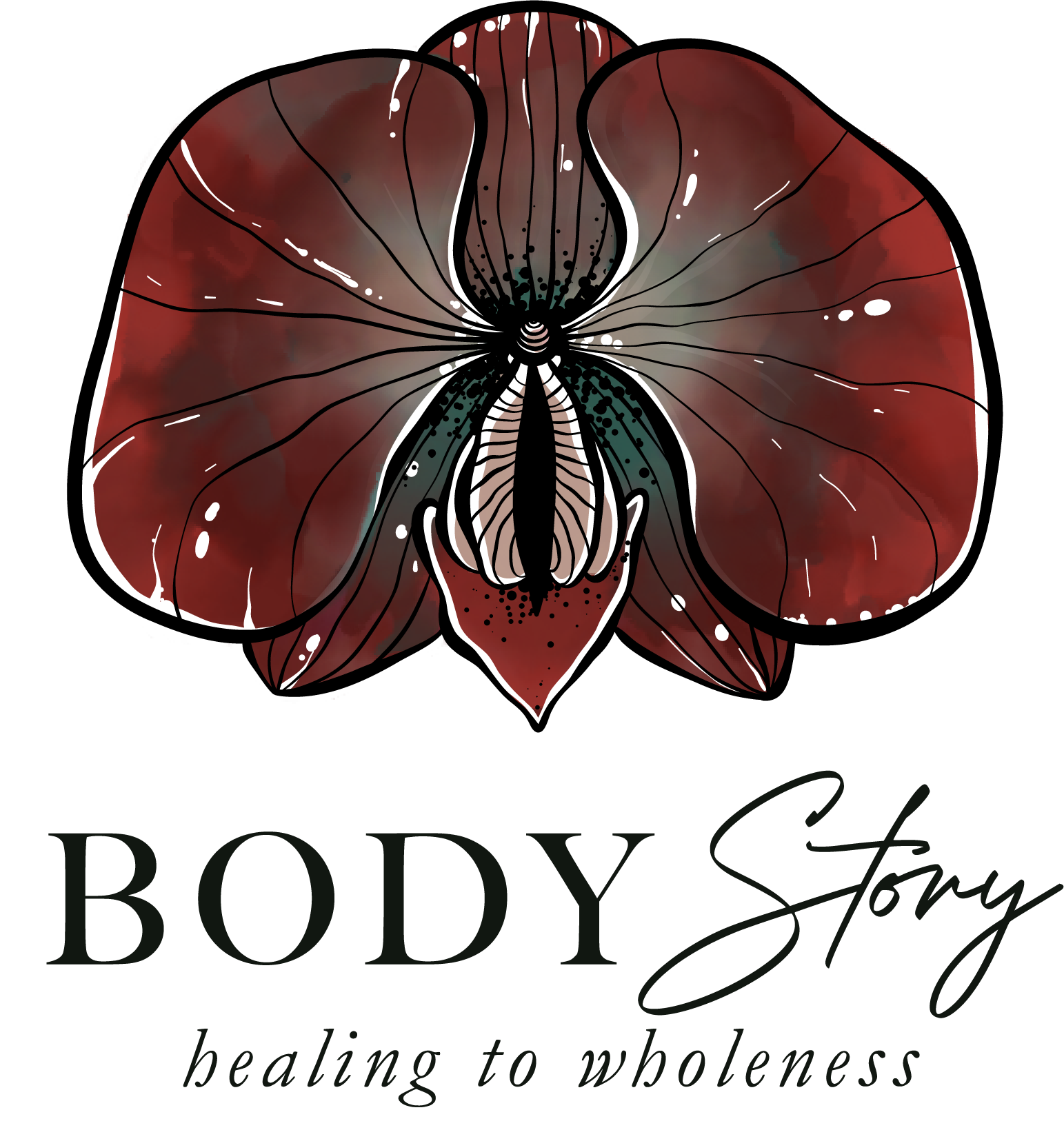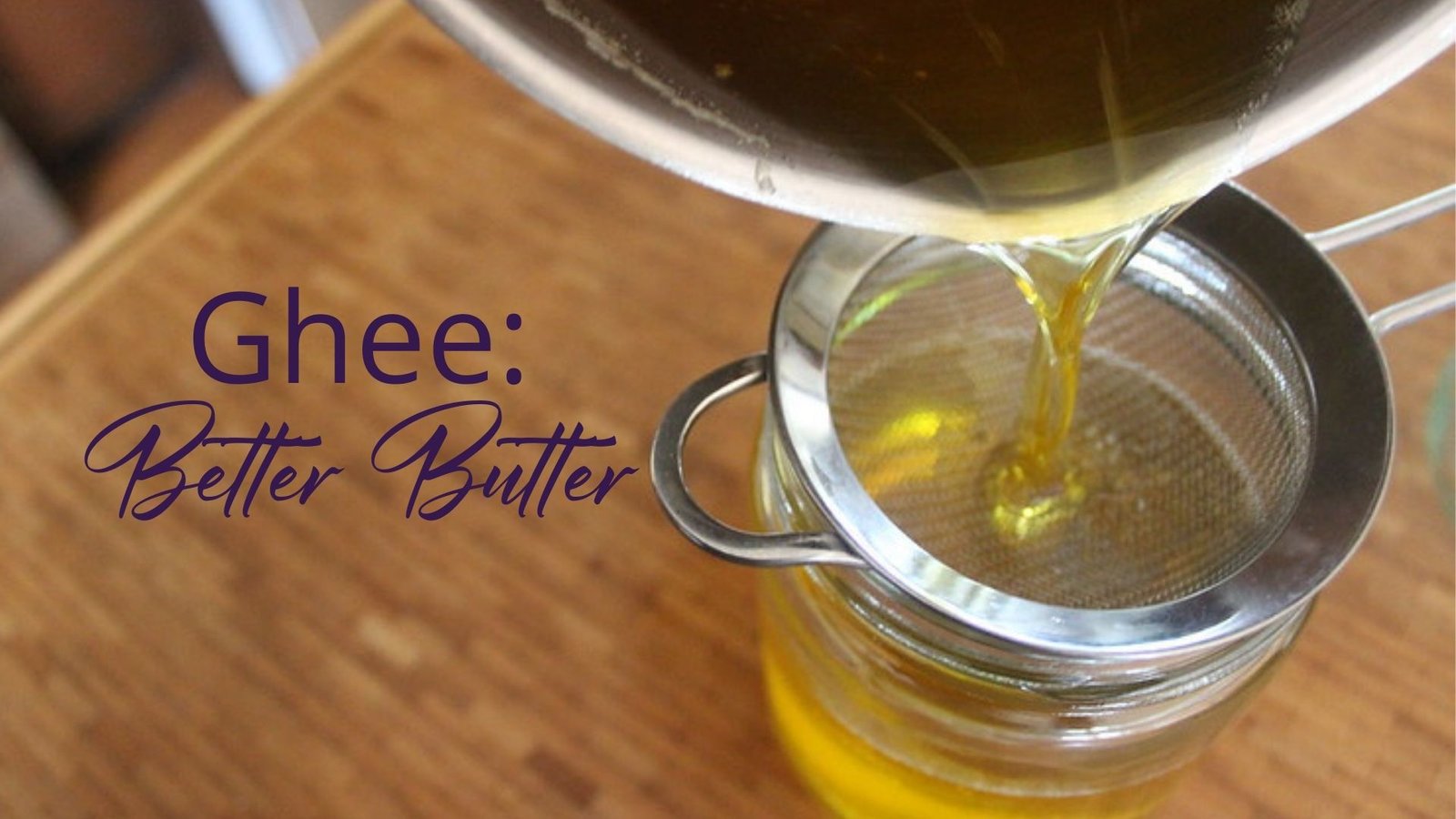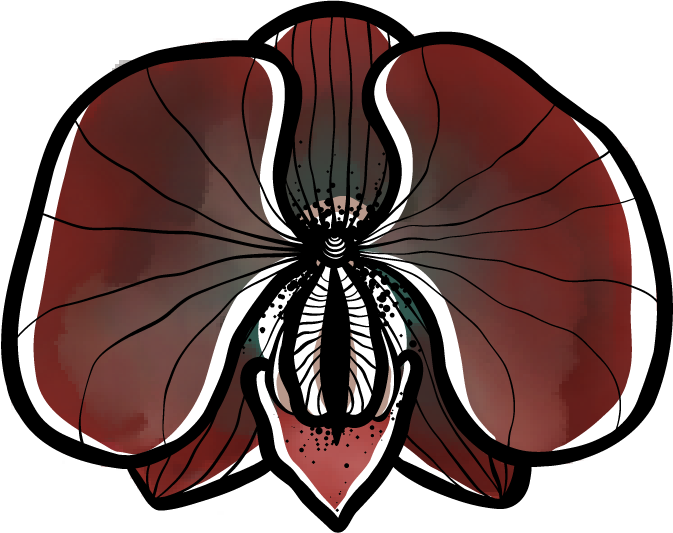It had been years since I’d eaten butter, but there I was with two pounds of it.
These were my early days of studying Ayurveda. Suspicious as I was about butter, I dropped it into a big pot on my stove and watched it bubble away into something I was told was medicine. What I found was that ghee is a different kind of medicine, with an alchemical effect that heals not just the frayed ends of our bodies, but one that gives permission to enjoy a new kind of luxury.
Enter Ghee, Stage Left
I was raised in a butter-free house in the cholesterol-fearing 1980s. Fat-free powdered flakes replaced the melting yellow square on our mashed potatoes (carb free hadn’t yet taken off). We coated our cookware with odorless, tasteless sprays. They promised us we would have no guilt. They promised us we would look like her. And even though we never changed, we kept slipping money into their pockets as they whispered empty promises in our ears.
I don’t see these butter replacements anymore. I’m sure they sell them somewhere, but my eyes no longer linger on food that is all talk and no action. I’ve found the original butter replacement — ghee.
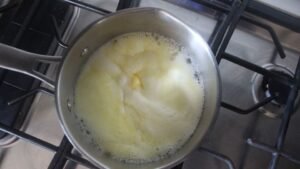
Liquid Gold
Ghee is everything that fear of butter is not. It is rich. It is unctuous. It is alive with life. Ghee is permission to be soft, a welcome gift in a hard world.
The great thing about ghee is that it is food and it is medicine. It’s got a higher smoke point than butter, longer shelf life, and does things that butter cannot do. It shines what’s dull, soothes what aches, and weighs down what is about to float away. It’s good for tired joints, inflamed guts, dry colons, depleted muscles, tired brains, postpartum bodies, and so much more.
But one of the best things about ghee is that it is an annupana, or a substance that draws the nutrients from what we eat deeper into our tissues — like a slip-n-slide for what you eat. Many Ayurvedic practitioners have their clients take vata-calming herbs with a spoonful of ghee to help the medicine go down.
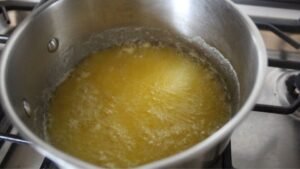
Better Butter
No, it doesn’t taste the same as butter, but it’s not supposed to. Ghee is not butter. It is better butter.
Because by boiling the butter and removing the solids from the liquid, we lose butter’s congestive qualities while retaining the heart of what the cow offers us.
The (un)recipe for how to make ghee is more of a practice of mindfulness than anything else. Because all you’re doing is boiling butter for 10-20 minutes (depending on the quantity you make). But you must stay present.
Walking away from the ghee is a sure way to end up with burned medicine that has lost its juju (and a pot that is a hassle to clean). Stay with it. Sing to it. Talk to it. Listen to it singing back — the bubbles shifting from thick, heavy bubbles to soft, clarified pops.
As you wait for the ghee to arrive, meditate on the value of your soft places.
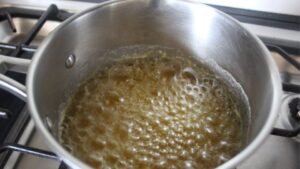
Ghee (un)Recipe
Place one pound or more unsalted organic butter in a large stainless steel or glass saucepan. Turn the heat on medium high and melt the butter until it is completely liquid. Reduce the heat to medium-ish, depending on your stovetop. You’ll hear the sounds of large, thick, bubbles at first and gradually the sound will change to softer, slower, clearer pops. For one pound, this takes about 10-15 minutes. More butter means more time.
When the popping has slowed and the bubbles are clear, gently tilt the pan to see the bottom. If it is coated in a thick brownish white goo, your ghee is ready to be strained.
Allow the ghee to cool slightly — 10-15 minutes. Then, using a fine mesh strainer and/or cheesecloth (I only use cheesecloth if my strainer does not have a tight weave because I dislike the extra step of washing the cheesecloth), pour the ghee into a clean and dry jar.
Store the ghee at room temperature out of direct sunlight. Use a clean and dry utensil every time you need to scoop some out, and the ghee will be fresh and happy to serve you for quite a long time.
(Note: you’ll see many recipes on how to make ghee that call for scooping off the foam from the top as it cooks. There are just as many recipes that don’t call for scooping. I’ve tried both ways and find that the scooping method just sacrifices some of the ghee. Considering that organic butter is $10 a pound and the end product in the non-scooped version is great, I go with that.)
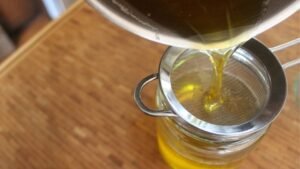
Journaling Prompts
Here are some bonus journaling prompts to unpack your relationship with fats:
- Have you ever restricted your intake of oils and fats? What was the reason? Has this changed?
- What is your definition of richness?
- What does softness mean to you (in body and life)?
